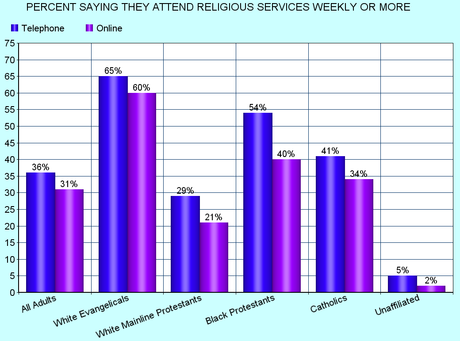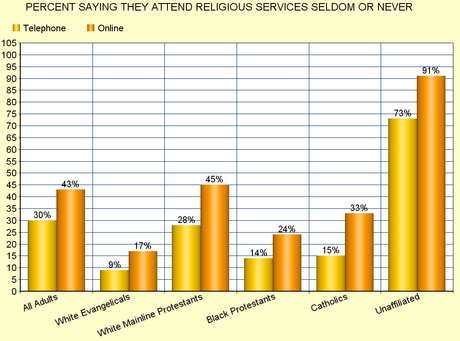

Most polls asking Americans about religion are done over the telephone -- where respondents are asked to answer questions posed by another real person. This brings up a question -- are the respondents telling the truth, or are they giving the questioner the answer they think they want to hear?
There is a lot of pressure put on people in this country to be a part of the dominant religion, and it is not uncommon for those who don't go along with that (and at least pose as being religious) to be pressured, denigrated, or even shunned. It would not be beyond the realm of possibility for at least some people to give the expected answer instead of the truth so they can avoid any possible repercussions.
And a May 2014 study done by Daniel Cox, Dr. Robert P. Jones, and Juhem Navarro-Rivera for the Public Religion Research Institute shows that this is indeed the case. They compared surveys done over the telephone with online surveys (where people are truly anonymous), and they found that people are more willing to give a negative response about religion (and probably more truthful) in the anonymity of an online poll instead of a telephone poll when they are talking to a person.
The charts above reflect the difference between a telephone poll and an online poll. Note that this is true of not only all adults, but every group. This means we probably should view telephone polls on religion with a jaundiced eye -- and subtract a few points from positive responses and add them to the negative responses.
Oddly enough, this is true even of those claiming no affiliation with an organized religion. One would think those people would be more willing to give a negative response to religious questions, but some of them also feel intimidated when talking to a person over the phone -- and are much more comfortable giving a truthful answer in an online poll.

